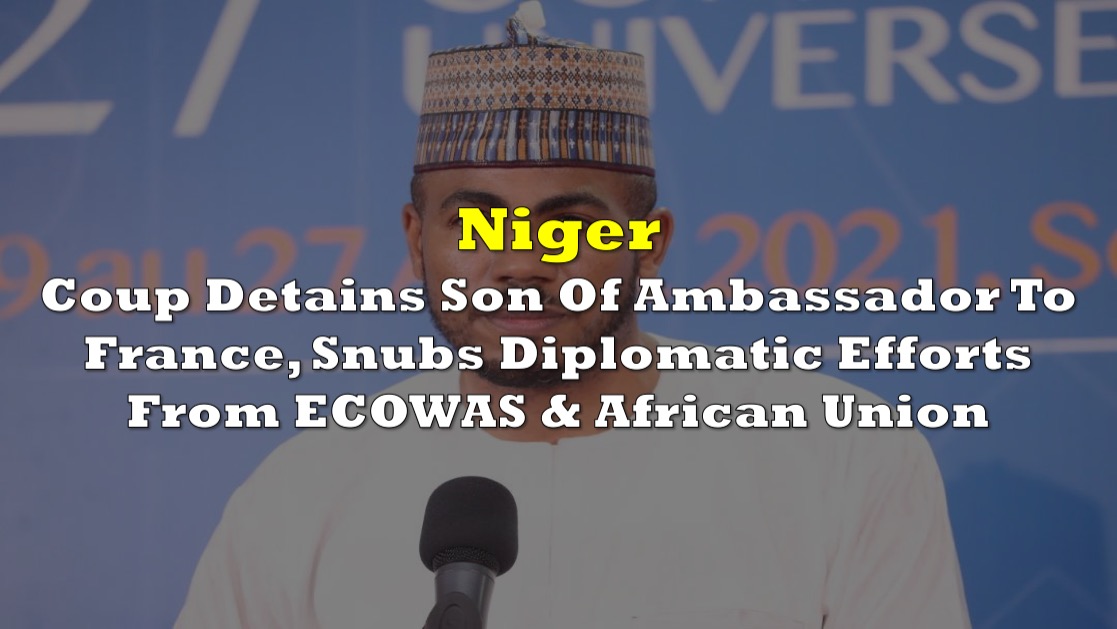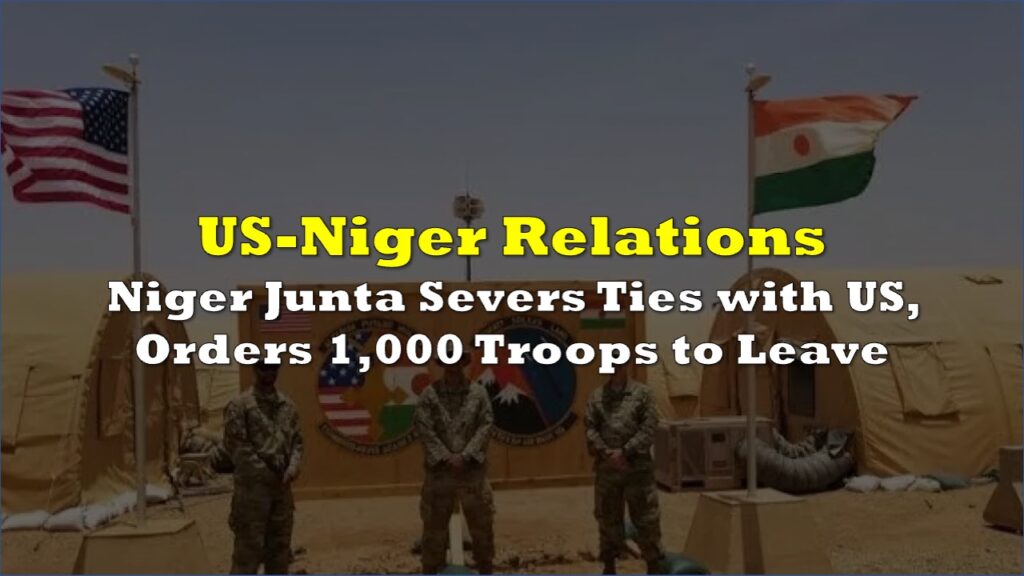More and more signs are pointing to an imminent war breaking out of Africa after the son of Niger’s ambassador to France, Aïchatou Boulama Kané, has been detained in the capital city of Niamey.
Idrissa Kané, who also serves as the general manager of Niger’s Post Office, finds himself embroiled in an alleged misappropriation of public funds case being investigated by Halcia, Niger’s anti-corruption body. Whether this detention is directly tied to the ongoing investigation or if it is influenced by his mother’s defiance against Niger’s new military leaders remains uncertain.
Ambassador Aïchatou has steadfastly clung to her post, despite a recent announcement by coup leaders declaring the termination of ambassadorial roles for Niger in France, the United States, Nigeria, and Togo. Her resolute stance has led to a clash of legitimacy, as she continues to assert her allegiance to President Mohamed Bazoum, whom she regards as the rightful leader.
“[The decision to terminate her role was] null and void, it was taken by an illegitimate power. I am the ambassador of Niger in France,” she said.
Diplomatic decline
Regional diplomatic efforts have faced setbacks as coup leaders rejected a delegation visit from the Economic Community of West African States (ECOWAS), citing security concerns linked to existing public anger over economic sanctions imposed by the regional bloc. As heads of state from ECOWAS gather in Abuja, Nigeria, the international community anticipates the outcome of these negotiations.
As Niger grapples with its political upheaval, the consequences are extending beyond its borders. With international sanctions taking effect and the closure of Niger’s airspace compounding existing humanitarian challenges, the situation remains precarious for the country’s vulnerable population. Amid these events, the presence of Russian Wagner mercenaries, a concern voiced by US Secretary of State Blinken, adds further complexity to the already volatile region.
Reports indicate that various nations are actively coordinating to establish a unified stance for the impending extraordinary summit. The first signal of this united front will be the reception given to a joint delegation from the African Union (AU), ECOWAS, and the United Nations (UN).
The joint delegation, representing ECOWAS, AU, and UN, is set to arrive in Niamey, the capital of Niger, for discussions. The troika, consisting of representatives from these international bodies, is expected to engage with the coup leaders on behalf of the global community. The central message they convey is clear: a demand to reinstate the dissolved institutions of the Republic.
Amid these diplomatic efforts, Acting Deputy US Secretary of State, Victoria Nuland, traveled to Niamey on Monday and engaged in a two-hour dialogue with representatives of the junta. This visit underscores the continued pursuit of diplomatic channels.
Adding another layer of complexity, former rebel leader and politician Rhissa Ag Boula has unveiled a political movement, the Council of Resistance for the Republic, aimed at reinstating ousted Bazoum. The movement signals the first internal pushback against the military coup that gripped the nation in July, indicating a potential rift within the country’s political landscape.
While officials and diplomats stationed in Nigeria maintain that a military operation was never the primary intent after the ultimatum’s expiry on July 30, they acknowledge that the option of employing force is not entirely ruled out. The focus remains on de-escalation and a dialogue-driven resolution to the crisis. Nigeria, along with Ivory Coast, Senegal, and Benin, has volunteered to contribute troops in a potential intervention. The Chiefs of Staff have coordinated a plan that could involve up to 25,000 personnel, with Nigeria providing the largest share of troops.
The commander leading this force is a Nigerian division general. However, specific details regarding troop deployment locations remain undisclosed due to security concerns. It is understood that each contributing nation will have designated areas, with military bases situated in proximity to the Nigerien borders.
The Chiefs of Staff, responsible for the operational planning, maintain open communication and express their commitment to ECOWAS directives.
Information for this briefing was found via France 24, RFI, and the sources mentioned. The author has no securities or affiliations related to this organization. Not a recommendation to buy or sell. Always do additional research and consult a professional before purchasing a security. The author holds no licenses.









